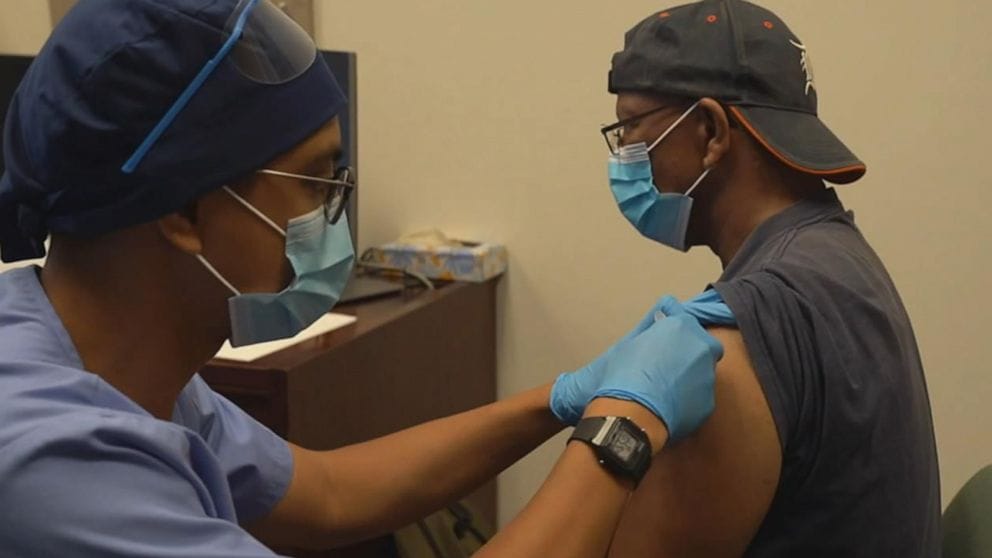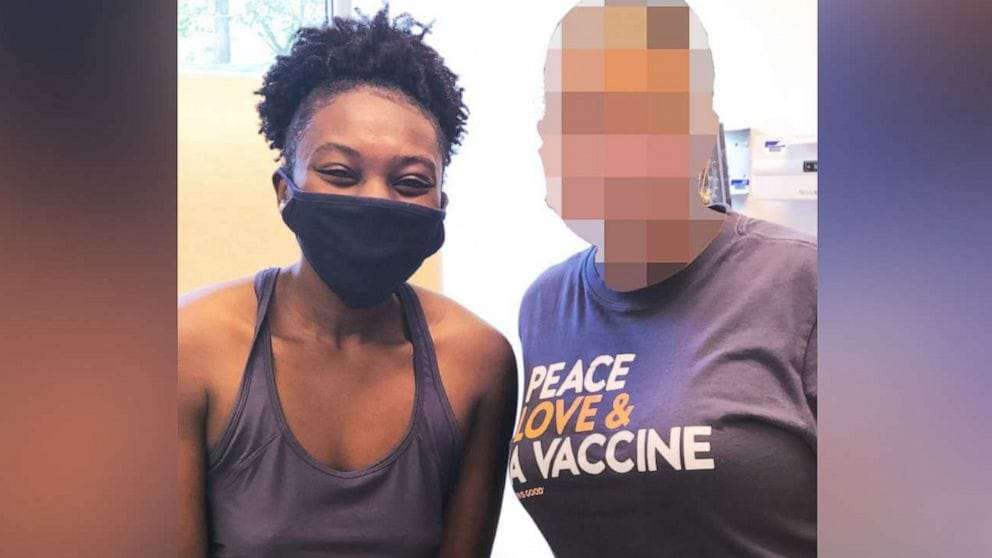Considering America’s racism, should I accept the COVID-19 immunization?
Now that two COVID-19 vaccines are available, some people are conflicted about being immunized creating muddy waters for the most vulnerable about safety, racism, conspiracies and efficacy. Retired physician Marc Sapir strives to bring clarity to the decision process many of us are experiencing. The post Considering America’s racism, should I accept the COVID-19 immunization? appeared first on San Francisco Bay View.


by Marc Sapir MD, MPH
A good friend, a middle-aged African-American woman, asked me to comment on concerns she’s heard about racism and whether African Americans should accept the COVID-19 immunization. Here’s what I responded:
The two vaccines approved in December 2020, Pfizer and Moderna, both appear to have high efficacy, protecting about 95 percent of people. Safety seems pretty good, but we won’t know how good until millions of people have gotten the vaccine. So far most side effects are minor and similar to other vaccines like influenza, though some people have gotten chills, fever, headaches and weakness in addition to the common injection site soreness. Because two people with past anaphylaxis (a dangerous form of shock) had severe allergic reactions on the first day of immunization in England, anyone with a history of severe allergic reactions – especially to vaccines but perhaps anyone with anaphylaxis of any cause – probably should not take the Pfizer vaccine.
Especially because of the inordinately high COVID-19 case and death rates in Black and Latino communities, I think it’s dangerous to spread fears of taking the vaccine, other than in people with those severe allergic reactions in the past. Rumors that there could be a conspiracy against people of color getting vaccinated seem to me to be fundamentally racist – perhaps instigated by those hoping that more people of color will die.
I see zero evidence that racist discrimination could be behind giving people the vaccine when the greatest racism would be in preventing people from getting it.
This is not the era of the Tuskegee project, nor of segregated hospitals and health care facilities. This is the era where inequality in health care is primarily reflected in terms of reduced access to care and inadequate insurance coverage. Just as Rev. William Barber, co-leader of the Poor Peoples’ Campaign for a Moral Revival, promotes people avoiding congregate settings and practicing social distancing and mask wearing, people who are trusted in communities of color and among the poor in general should point out that the gravest health care danger we face in the US today is this system’s refusal to grant equal access and quality of care to all.
Those of us who want to assure that the most vulnerable have the greatest access to care, including the COVID-19 immunization, are assuredly people who believe that “Black lives Matter.” Does that mean that down the road we won’t discover side effects not previously noticed? No, it doesn’t. The reason why this is called an “emergency use” approval by the Food and Drug Administration is precisely because they cannot guarantee no harm when they move quickly in an emergency situation.
But I see zero evidence that racist discrimination could be behind giving people the vaccine when the greatest racism would be in preventing people from getting it.

“Peace, love and a vaccine.”
Emergency use FDA approval based on smaller numbers tested than typical is always a two-edged sword. But it’s apparently what saved Trump’s life with the monoclonal antibodies he received. And I suspect it’s also what just saved Giuliani’s life and perhaps a number of other obese and elderly Republican politicians who got the virus by ignoring public health advice.
They’ve had preferential treatment while over 3,000 Americans a day are now dying, lacking access to the (not very widely tested) medications Trump got. That denial of care is where the discrimination, racism and disregard for human life is to be found.
And as reported, the rich countries, including the US, Britain and the Europeans, have essentially bought up all the vaccine that will be produced in the next 6-12 months – more than they can ever use – essentially depriving the people of Africa, Asia and Latin America of the protection the vaccines can afford. That’s where the racism and discrimination exists.
Marc Sapir is a retired physician who worked 46 years in community clinics, set up and led community projects and worked in public health. He joined the civil rights movement led by Martin Luther King in 1959 at the age of 17 and has been a social justice activist, writer and media critic continuously since then. He currently serves with the Poor Peoples’ Campaign led by Revs. William Barber of North Carolina and Liz Theoharris of New York. He can be reached at marcsapir.net.
The post Considering America’s racism, should I accept the COVID-19 immunization? appeared first on San Francisco Bay View.







